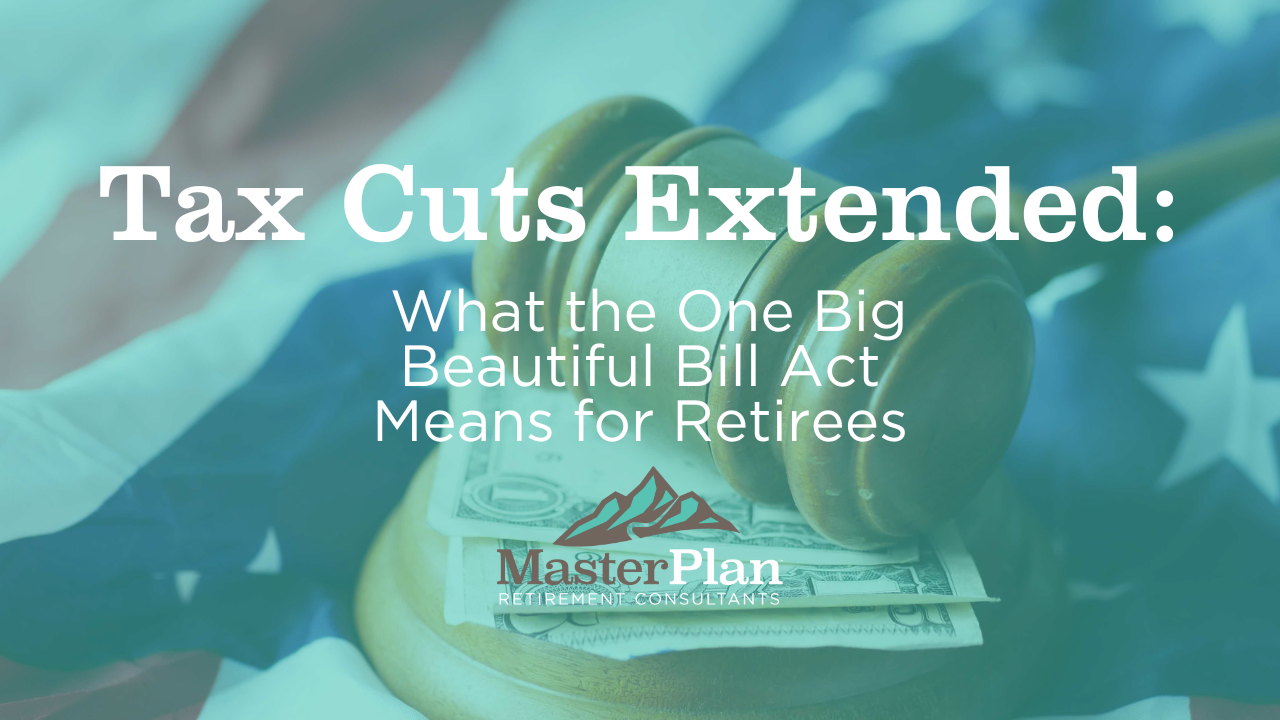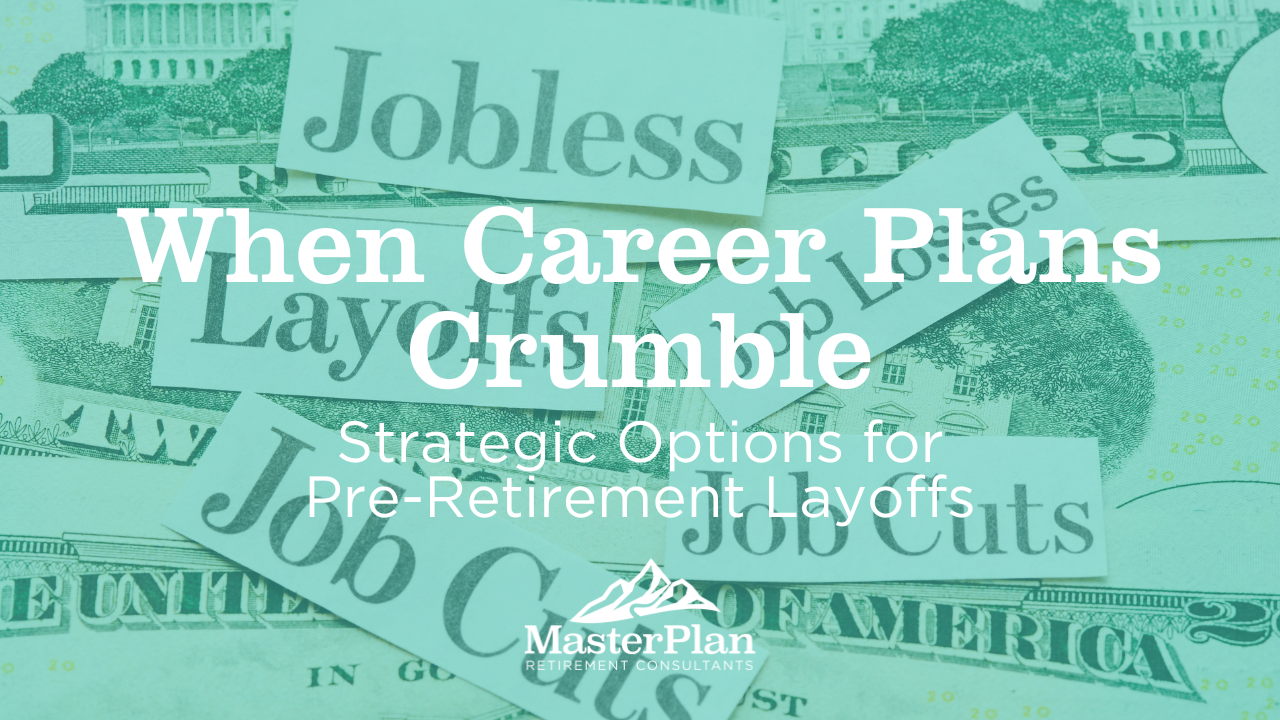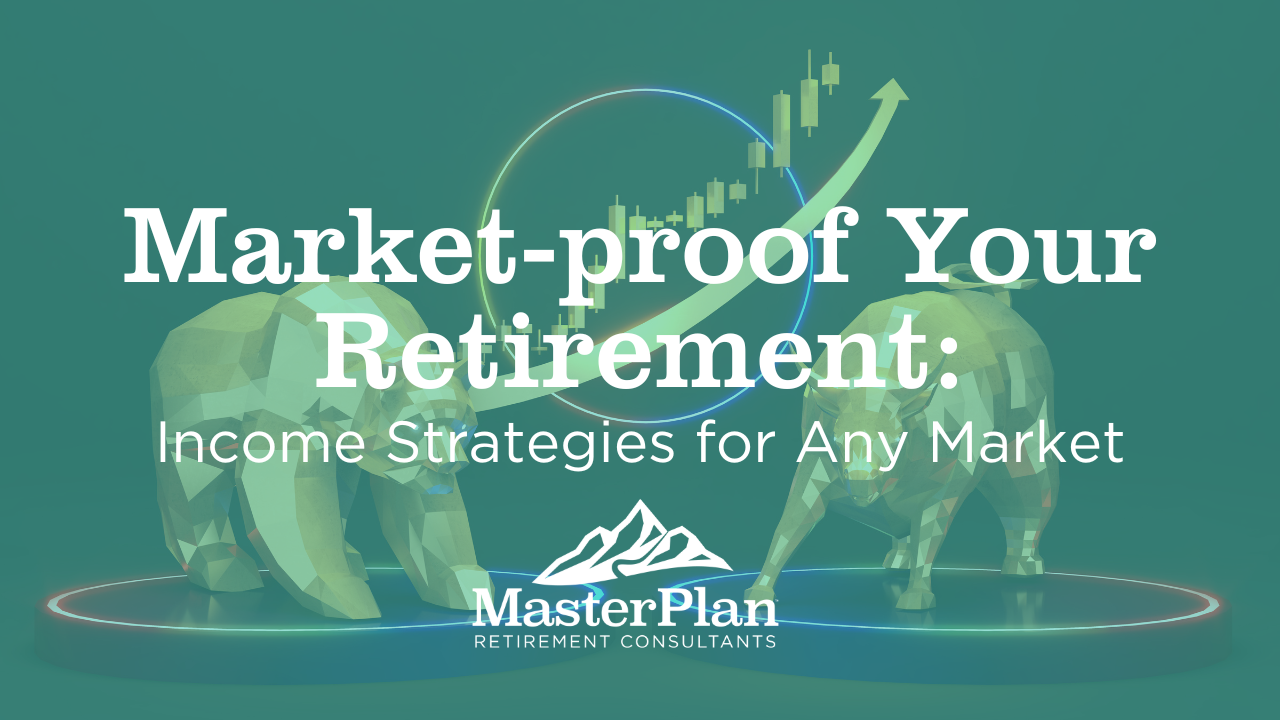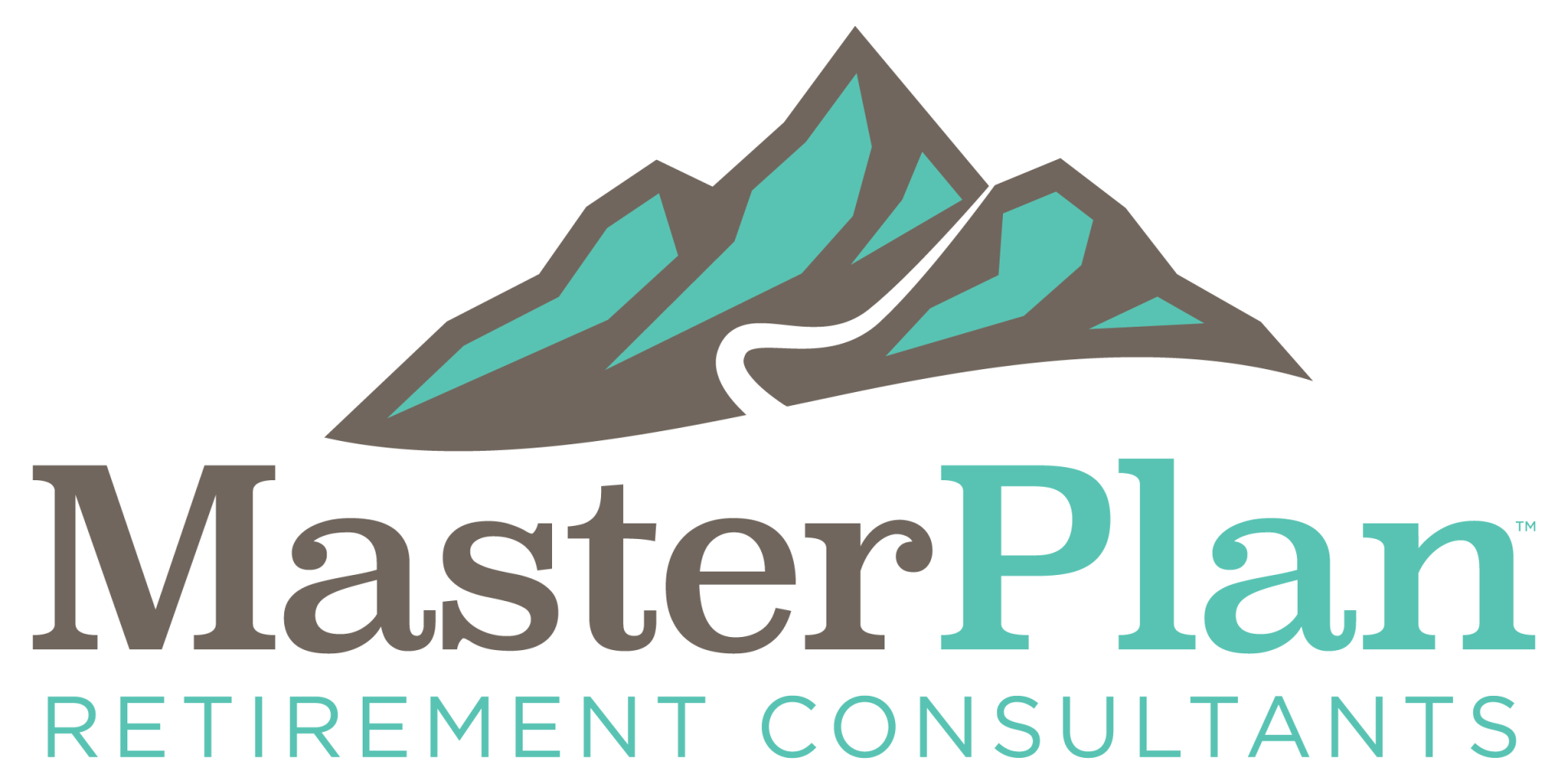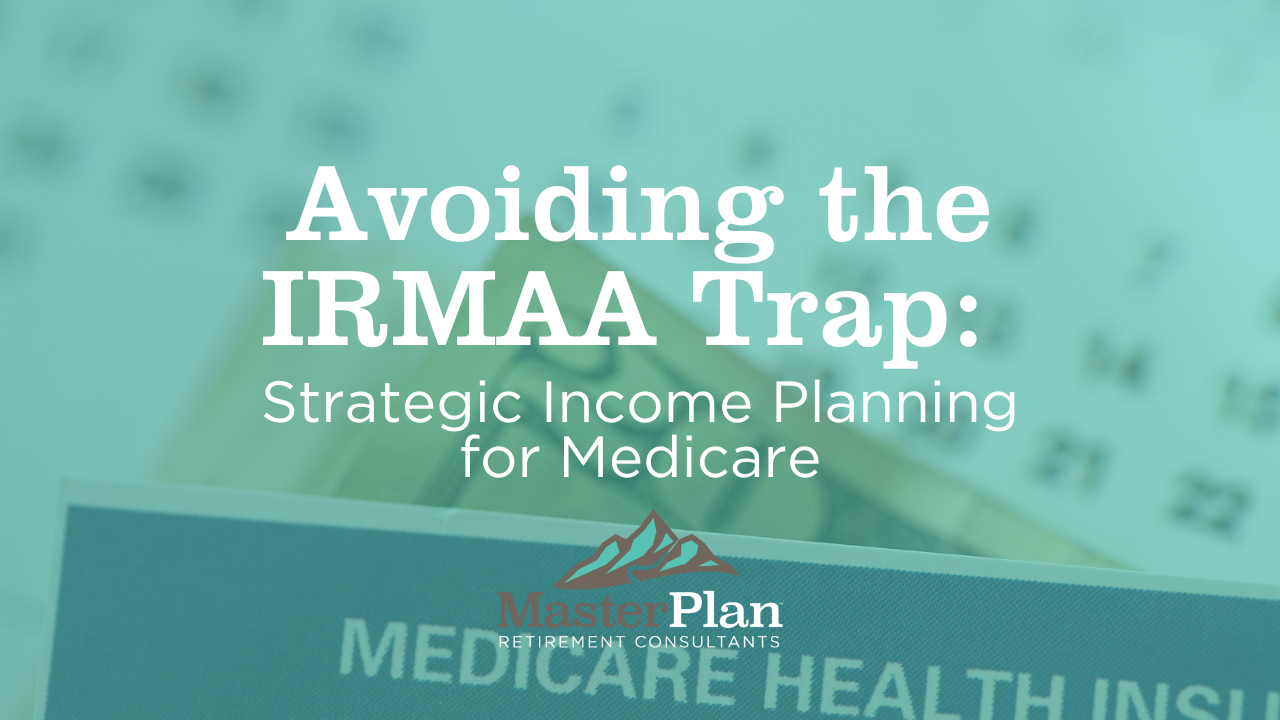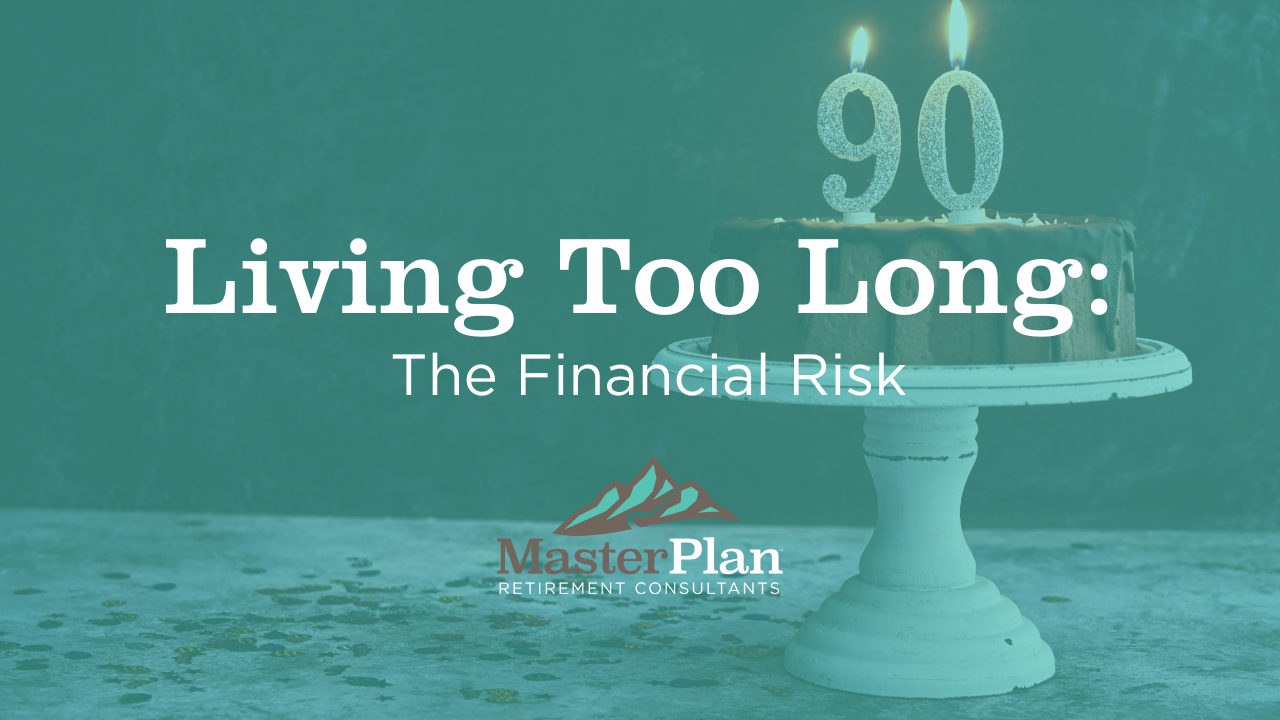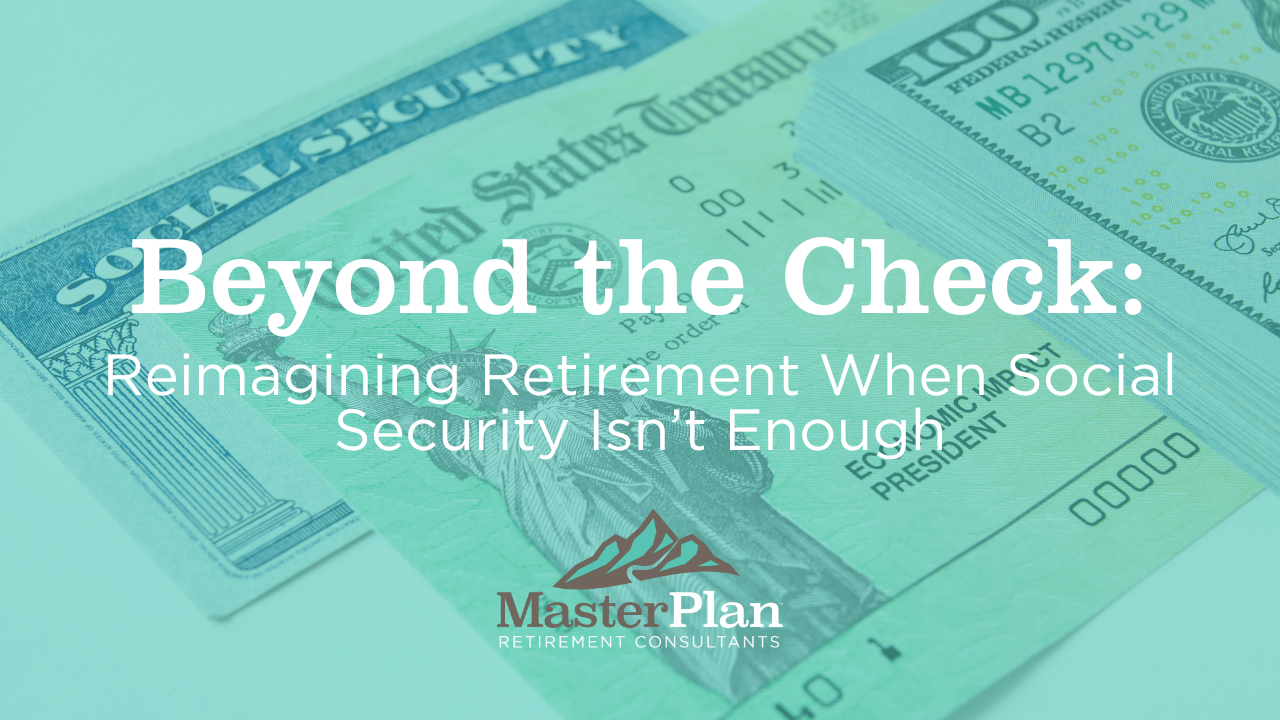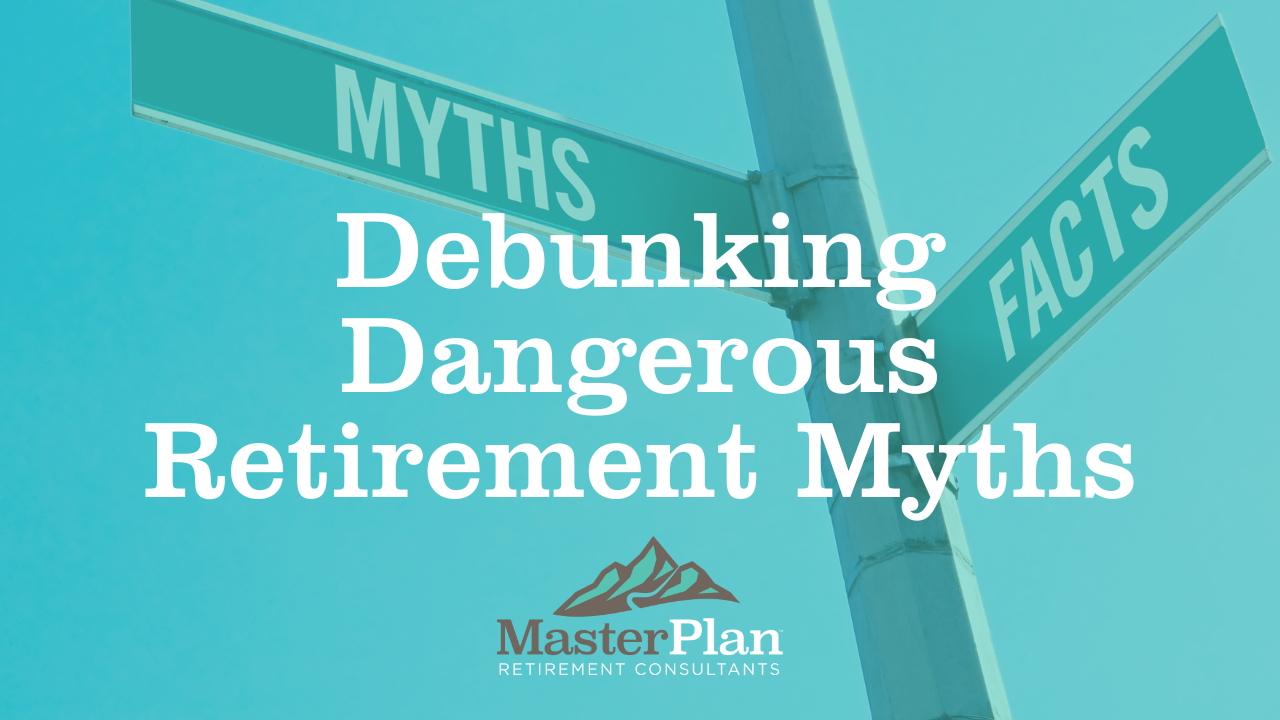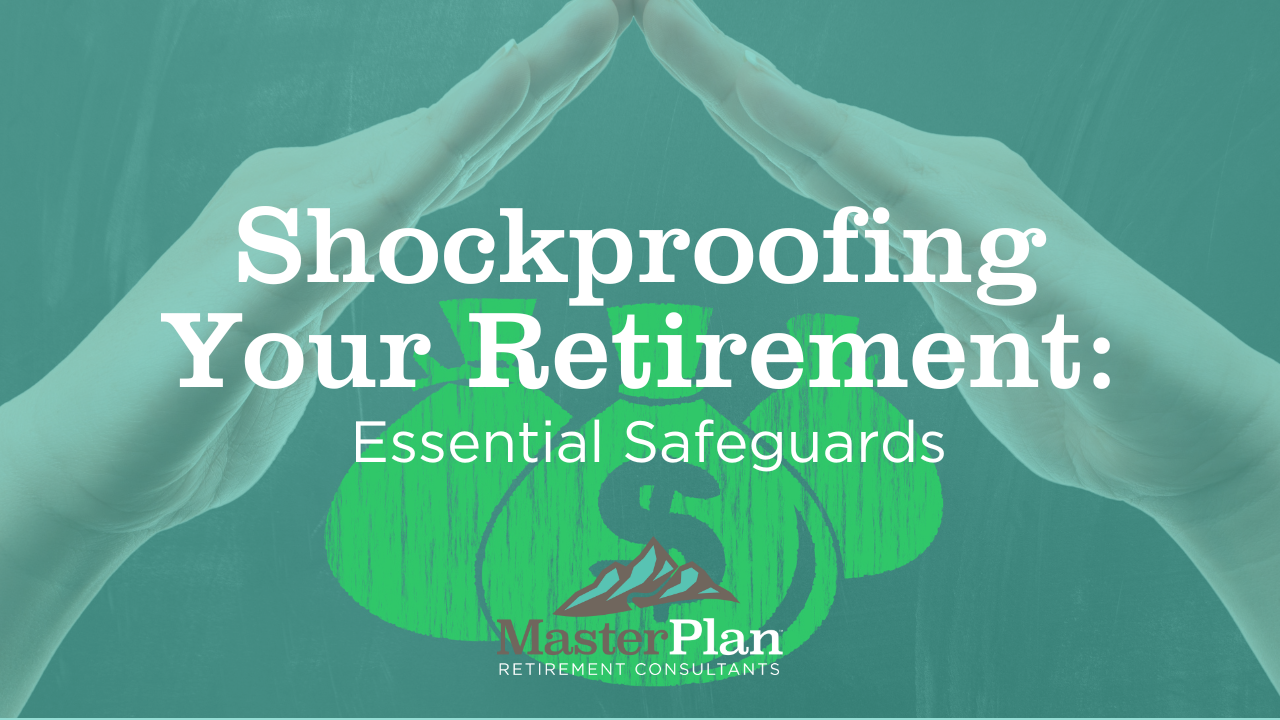Maximizing Your 401(k): Hidden Strategies and Common Pitfalls
On this episode of Retirement Roadmap, Evan and Mark explore how to maximize your 401(k) balance and integrate it effectively into your overall retirement strategy.
Evan Fricks:
How can I maximize my 401k balance? Hey folks, welcome back and thank you for joining us. Welcome to Retirement Roadmap with MasterPlan Retirement Consultants. My name is Evan and with me, as always, retirement planner Mark Fricks. During the show, we're going to look at how you may be able to boost your 401k balance and how it may fit in with your overall retirement plan, mark. A vast majority of Americans in 2025 have what we call tax deferred money A lot of that in 401ks, iras, things like that. It's a pretty considerable amount of their assets.
Mark Fricks:
That is the majority of their assets. That's the way we've been saving since 1979, when the ERISA laws came out, created the 401k and it gave workers a great opportunity to almost automatically save. You almost don't see it leaving because it's just not part of your paycheck. Kind of the same way we pay taxes right, but it's less painful. And then, of course, if a company matches, it's free money. So yeah, it's been a great way to accumulate money. It's in the market. Markets grow over time. You know the pushback or the negative is, of course you've got taxes as it comes out. But still it's a great tool and the more you can do with that the better.
Evan Fricks:
Yeah, when they came out in 1979, early 80s, they started rolling them out, doing away with more pensions, putting more of the responsibility on the employee versus the employer with pensions. They didn't put too many people through classes or hand them a handbook of 401ks and you or anything else like that you tell the story all the time. You didn't know what you were picking when they introduced this new fangled 401k. We don't get training as employees on how to invest or even what the rules are.
Mark Fricks:
And we still don't. They didn't in the beginning and they don't now. And so people are playing in the market to use probably not the best word in the world but they're playing in the market with very little knowledge. And so, as you said, I've told the story very quickly.
I think it was 1981, my first corporate job, and they came in after I'd been there six months and said hey, you can open a 401k. And I said, great, what is that? And then, and they didn't really know, you know the HR department, you know they're just like well, you just choose an amount of money to put in there, we're going to match this much, and then you just need to pick some mutual funds. I this much. And then you just need to pick some mutual funds. I said, oh, perfect, what's a mutual fund? And so it's just really blindly entering the market and not knowing how to maximize it, which we're going to talk about today, how much to put in there. And then, of course, when I got my next job, if I remember, I think I ended up spending what was in there. I wasn't educated about it and how to handle it.
Evan Fricks:
Yeah, you don't know, especially when you're young, in your 20s. It happened to me and I had some bills I needed to pay. I wasn't earning a bunch of money, my income was super low, starving artist early 20s and I saw my bills piling up and I saw a couple thousand dollars in a 401k. Hey, let's just do this. I'm young, no big deal. But once all was said and done on that phone call, on that withdrawal, seeing how much came out wasn't even fully vested the amount that was in there versus what ended up in my pocket.
Mark Fricks:
And you had no idea, and I had no idea, I was going to do that.
Evan Fricks:
I had no idea.
Mark Fricks:
You're like I can pay all my bills and when you get your money, you're like I can pay two of my bills. That's right, whatever it may be. Again, lack of education, and that's true in in a lot of different areas of retirement planning. We work with a lot of federal workers and they're not educated about their system and their pension and how their stuff works, which is why we teach so many classes for federal workers, both online. By the way, if you're a federal worker, visit the website masterplanretire.com, look under events and it will talk about upcoming classes for that and, of course, everything else we teach as well.
Evan Fricks:
So, starting out to maximize your 401k, first of all, don't stop auto-enrollment. Many employers start you at 3%. That might not cut it long-term, but you can boost your contributions each year, especially after a raise, to build a stronger foundation for retirement and legacy.
Mark Fricks:
That's the perfect time to do it. Pay yourself first. If you get a 5% raise and legacy, that's the perfect time to do it. Pay yourself first. If you get a 5% raise, bump your 401k maybe by 1% or whatever. Also, let's make sure you also have some cash as well, though let's be careful with this. If you're maxing out your 401k and you have $300 in the bank and you have an emergency, will you go to get the money? Either a credit card or a 401k, which is going to be a penalty. So do make sure you're feeding a little bit into a savings account as well. But again, maximizing that 401k is baby steps. Start off with what you can and then add to it as you can.
Evan Fricks:
And these days, especially if you are between jobs, trying to find a new position somewhere, looking at the benefits that the job provides can be a make or break for some people and check that out before you accept a job. Because if they're matching, have a good percentage that they're contributing, that can, for the long run especially, that can really be a great great deal and those that don't know.
Mark Fricks:
You know a good match is at least three percent. Five is a really good match and I know a few companies do even more than that. But yeah, that's a question you need to ask. It's not just about them asking you questions. Hey, what are you going to give me, because there are other jobs out there, Right?
Evan Fricks:
and that's a great segue to grab the match. If your employer offers a 401k match, contribute enough to get every penny that is offered on that match. That's free money, just for showing up and being smart, basically.
Mark Fricks:
Exactly. An example, of course, is again if they match 3%, then put in 3% as soon as you can and again, keep growing it.
Evan Fricks:
I mentioned earlier, when I made my withdrawal in my 20s on my 401k, I was not fully vested. Know your vesting schedule. Leaving a job before you're fully vested could cost you employer contributions. Think strategically beyond just this position before making that career move.
Mark Fricks:
Yep, yeah, again the vesting schedule. What Evan's referring to is the fact that the longer you work there, the more the match is actually yours, right, and so if it's a 10-year vesting or five-year vesting, I'm not saying you need to stay there that long, but do keep that in mind.
Evan Fricks:
Yeah, so Mark did mention be careful about contributing too much if you're not able to financially, but you do want to maximize those and make sure you can look at what you are able to do, work with your financial and tax professional to take full advantage of the limits. So there's up to $23,500, and that's not including the catch-up contributions. That's per year. That can go a long way when compounded over time.
Mark Fricks:
Yeah, and I know it's hard to do that in the early years. But as you get older, especially if you have kids, as they get older they maybe get out of college. That's why they have the catch-up contribution provision starting at age 50. You could put more in because, hey, you know they realize that in those early years you're just trying to make ends meet. Sometimes you try and get groceries paid. You know the kids are in daycare or whatever. So as you get older, always take a look at how much can we boost that up?
Evan Fricks:
That's right, and a lot of 401ks these days are now offering Roth options. See, if your 401k offers a Roth, that can be, but it comes out tax-free as well. But consider it carefully because once you start contributing to the Roth, you do not get that deduction that. You're the same as you would if you were putting it to the traditional side of the 401k, so that will affect your paycheck a little bit.
Mark Fricks:
Yeah, that's why it's a great time to maybe, when you get a raise, start putting that raise into the Roth, because you're not going to see a change in your paycheck. But, like you said, if all of a sudden I'm taking, say I'm contributing 10%, I say, okay, I'm going to put 5% into the Roth. From now on your paycheck is going to go down a little bit. So take baby steps, just do 1% or 2% at a time, say, hey, that wasn't too bad, I can do another 1% or 2% and go from there. So be very careful about that, be very strategic.
Evan Fricks:
Yeah, and you can still get your match. If you're contributing 5% and the match is 5% from your employer, you can contribute your 5% into the Roth portion. You don't have to put it in the traditional portion. However, employers still have to contribute to the traditional side. I don't, in my opinion, I think a lot of things would have to change before an employer would be incentivized to put their match into the Roth portion. They get so many tax breaks, things like that.
Mark Fricks:
Yeah, I don't see that happening, even if they start allowing it, which I think they may allow it now. I think I've seen one or two plans that maybe allow it, but from a standpoint of that match, they're going to put it into the traditional part, as long as I can see in the future.
Evan Fricks:
Yeah.
Don't cash out early, all right. So tapping into your 401k before age 59 and a half can trigger taxes and a 10% penalty, or worse, as we mentioned, with the vesting schedule earlier, it sets your future self back by cutting off compounding interest and shrinking your legacy potential. We know emergencies happen. Sometimes you don't have a choice but to go to your 401k but understand the penalties involved. There are some options before 59 and a half for pulling out penalty free from your 401k. There's first-time homebuyers. Certain medical or emergency needs qualify as well, but by and large you need to know the penalties in place there.
Mark Fricks:
And research that carefully because you know, maybe you think you do qualify, you take it out and you get a tax bill. It can hit you pretty hard, so be careful with that. Just know your options. Again, talk to your CPA, your financial advisor. We have the answers, yeah.
Evan Fricks:
And another interesting option. It's a little off the beaten path from what we're discussing but it's also on withdrawals. If you are 55 or older between 55 and 59 and a half and you decide to leave that employer and you have a 401k with that employer, as long as that 401k is still there, you actually can make penalty free withdrawals after 55 from that 401k. A lot of people who want to retire a little bit earlier maybe they're retiring at 55, they retire, they've got this 401k. But A lot of people who want to retire a little bit earlier, maybe they're retiring at 55. They retire, they've got this 401k. But they start maybe they're talking to an advisor who's not fully thinking or not thinking in their best interest they start rolling over their 401k to different IRAs to try to set up their retirement plan. Well, they just lost that penalty-free withdrawal because the IRAs themselves are still 59 and a half like 401ks. But that last 401k at your employer you have that liquidity for those four and a half years.
Mark Fricks:
Yeah, and that's why, when we work for folks from 55 to 59 and a half, we will leave some in that 401k. We'll kind of figure out okay, we got this many years, this much liquidity, let's leave maybe 20% in the 401k or whatever. Go ahead and get the rest of it to work in better ways and more diversification, but leaving some in that 401k or thrift savings plan or whatever. And again, I've seen so many advisors that I've had to come behind and kind of clean up messes because they rolled the whole thing over because they wanted to make the money on it or get the commissions on it or get the management fees on it or whatever.
Evan Fricks:
nd just made a mistake, or just didn't know, just wasn't thinking.
Mark Fricks:
Just didn't know, and that's where you know it's good to work with people that have been around a while, know all these rules and make sure they're again in your best interest. A fiduciary, yeah.
Evan Fricks:
Now speaking of leaving that job, roll it over.
Mark Fricks:
Don't start over so if you change jobs, a direct rollover into an IRA or a new 401k helps you avoid taxes and penalties while keeping your retirement savings on track and growing yeah, I don't like leaving a 401k at an old company and I typically like and again, every situation is different but you're better off in most cases having somebody take a look at it and it may be in your best interest to roll the majority over into a private personal IRA, because the the world is your oyster. You know, in a 401k, you know you're limited to 10, 20, 30, 40, 50 mutual funds in the world. You're you're unlimited. I mean, there's so many things you know, as I talked about in class.
You know you can buy a rental house in an IRA. You can't buy a rental house in a 401k. You can buy precious metals physical in an IRA. You can't do that in a 401k. You can get actively managed portfolios of individual stocks in an IRA. Most of the time you can't get that in a 401k. So it does open up the world but again, it's not always hey, let's do it all, let's do a portion, but when you change jobs, make sure you have somebody take a look at that that is a fiduciary again and see what is in your best interest. That's right.
Evan Fricks:
And a big one. Watch those fees. High fees can quietly eat away at your growth. Review your options again with a financial professional. Keep more money working for you. See, I think there's a confusion with 401ks. People think that they're generally low fee and they can be, but in general they're more on the higher end of fees, not only because of the plan itself, but each mutual fund without a 401k has its own individual fee and, like you've said before, if you don't read the prospectus on that mutual fund, you don't know what fee you're paying.
Mark Fricks:
Yeah, may be two percent. You know, and it's um kind of hidden in the prospectus. Uh, studied, studied down, I think about five years ago, determined that 401ks on average were some of the most expensive investment vehicles. And again we we want to use them because of the match and everything else, the automatic contributions, but again they can be pretty expensive. You start looking at those individual mutual funds. A nice international fund, 1.75 percent is coming out. You just don't see it. It's inside that fund. And so people come in and say no, I'm only paying 25 dollars a quarter as a fee, or what I said.
Evan Fricks:
Let's take a look at that and see for sure and it doesn't mean that a high fee mutual fund is bad for you. It kind of depends on what its track record is, what you need as far as diversification. But just keep in mind you are paying a higher fee for something that is not actively managed.
Mark Fricks:
Right, right and again. That's the benefit of many times moving some of that form of gate into IRAs, either when you change jobs or get a certain age or leave a company.
Evan Fricks:
Yeah, and I like that too, about the international funds or something that might be a little more robust. Diversify smartly. Don't fall into home country bias. Spread your investments across asset classes, tax treatment styles and global markets. Real diversification happens inside the portfolio, not across brokerages.
Mark Fricks:
And be careful if you work for a company that has an option to buy their stocks. I'm not saying it's good or bad, but I've seen some people come in here and 90% of their 401k would be in their company stock and I can understand the feeling of you know this is my company and I know it's strong. We have good workforce or whatever. But no company is perfect and you know there's a changeover. If you look at the Dow Jones over the last hundred years, every 20 or 30 years there are some different companies in there, ones that have entered it, ones that have failed. I mean you look at the GEs and companies big, huge companies that were too big to fail that failed, you know, or at least certainly dropped in value. So, as you said, diversify, including your company stock as well.
Evan Fricks:
Yeah, we see that around here a lot. We've got a lot of big companies in Atlanta. We've seen a lot of folks with Coca-Cola 401ks and they have a ton of positions in Coke and fortunately Coke's a relatively healthy company, especially the last few years. But that's the opposite of diversification. That's all your eggs in one basket. So, yeah, be careful on that. And that can be hard too. You put in, you have that loyalty to your company. You put it in for years and years. People maybe this is you or maybe this sounds strange to you, but people really do have an attachment to those shares, especially after years and years. They have that built-in loyalty. It can be really hard to pull the trigger. Then, on the other hand, some people are like it's time to retire, get rid of it all we're getting out.
So yeah, just keep that in mind.
Mark Fricks:
I don't know how many people remember Enron. Enron this has been many years ago and I don't even remember all the details at this point, but a company was so large, too big, to fail A lot of those folks in fact I think they had pensions with them as well A lot of the pensions failed their stock price, they went away and these people were just devastated. I think that happened with another tech company, I don't know, 15 years ago that had split off from, I think, bell South or when the breakup came about, maybe 20 years ago. But again, no single company is perfect and just diversify.
Evan Fricks:
Right Plan for RMDs Now. If you're younger and you're just trying to figure out how to maximize your 401k, maybe you're not even thinking about RMDs at this moment, but required minimum distributions once you turn 73 for most people right now. If you're younger, it's more likely when you're 75, but you're required to take distributions. That's from 401ks and IRAs, and there are some tricky things with that as well to consider. You can't aggregate all your IRA RMDs. You cannot do that with 401ks. Each 401k has its own RMD. You can't take the full amount from another 401k and expect the other to be covered. You got to plan for that, and not only to make sure you're taking them, but consider the tax implications as well.
Mark Fricks:
Yeah, and as to your taxable income, of course, that's why we love the Roth no RMDs on that. So if you don't need it, you don't take it, and so you just let it grow tax-free. And when you do need it, it comes out tax-free. So even if there was an RMD, at least it's tax-free, but not an RMD until you pass away and or your spouse has gone as well. Then whoever inherits it will have to pay. Take it out over a 10-year period, but still it's tax-free.
Evan Fricks:
That's right. You can start to see now how strategic some of these things have to be building RMDs into income plans, tax strategies, things like that. We do that every day with our clients and much more. We have to figure out how all of these money retirement aspects fit together, because we know if you make a change in one area it's going to inevitably affect other areas. If you are interested in discussing your own retirement folks, go to our website, masterplanretire.com, or give us a call 770-980-9262. We offer complimentary consultations to discuss your own retirement, no strings attached. We'll run a series of reports for you 10,000 foot view of your own retirement and see where your strengths and weaknesses are.
Mark Fricks:
Yeah, take advantage of it. These reports are very revealing. No, as Evan said, there's no cost, no strings attached. We're not trying to reel somebody in or whatever. We want to reveal to you where you're at, and then you take a look at that and go hey, I think I do need help. It's almost like going to a doctor Sometimes we're afraid to because we're afraid we'll find out something's wrong. The sooner you find out something's wrong in your finances and retirement, the sooner we can work on it and get it healthy. That's right.
Evan Fricks:
Another big part of the 401k. Know your time horizon. I've just talked about RMDs. That's a very specific age, but what if you're in your 20s or 30s? You need to know your time horizon, not only for well, mainly for diversification purposes, to make sure that you are allocated correctly. Because, let's say, you are in your 20s and you don't realize that most of your money and your 401k is in a money market or a bond fund or something really conservative. You're really missing out on the opportunity. You have to be a little bit more aggressive in your investments. On the other hand, let's say you are getting close to retirement and maybe you are in some really aggressive funds that are more aggressive than your risk tolerance. And hey, if I've got two years before retirement, I don't know if I can take a big market hit like 25% drop or something. Know your time horizon. Know your risk tolerance.
Mark Fricks:
Well, you know, bear markets happen on average every five years. So a bear market is a 20% or more drop in a major index Dow Jones S&P 500. And so if that happens every five years, it could be in three years, it could be in seven years. Even if it's not a bear market, it could be a correction which is 10% or more. You know. So if you're a year away and you lose 25% of your 401k, you're probably not retiring in a year and a half. You probably have to work a while longer. So again, if you're working with someone or this is something we do every day, as we can either manage a 401k or at least take a look at yours once a quarter or whatever, and say you know, we need to kind of lighten up on this. Hey, we need. You're 25 years old, we need to be more aggressive, or whatever it may be. So this is not a general recommendation, just kind of more of a general statement. Be careful with that time horizon, as Evan pointed out.
Evan Fricks:
Really important. Your 401k does not live in a vacuum. It is not in its own bubble. You need to start looking at your 401k of how not that your 401k is your retirement plan, because a 401k is not a retirement plan. It is an account meant for retirement clients who sometimes we roll over their 401k. Maybe they're not at that point yet and so they still have a 401k and then some outside accounts IRAs, roths, insurance products, whatever. All of those are tools. So if you are setting up your retirement plan, understand how your 401k fits with your other buckets. Just a real quick example would be maybe you have an opportunity to be more aggressive with some of these buckets over here. That's maybe actively managed aggressive portfolio. They're trading whenever they need to, and maybe your 401k. You're using that as maybe you're more moderate or you're more conservative. Just, it goes per client. It could be different for anybody, but understand how it fits within your overall retirement plan.
Mark Fricks:
Absolutely. And again, how much to leave in there? How much to roll over? When do you roll it over? Again, I do not like rolling over a 401k plan to a new company 401k plan, so get help with that. I'm not saying it's always wrong, but it's typically not a great idea. But Evan's exactly right. You've got other things going on. Something else we look at, evan, as you know, is let's say, somebody is putting in 5% into their company the 5% they're getting a match, but now they can put a little bit more in. Maybe put that into a or IRA that is being separately managed, up to $8,000 if you're over age 50. Is it $7,000 if you're under age 50? I don't memorize those kind of numbers, folks.
Evan Fricks:
It changes so often.
Mark Fricks:
Absolutely so. Again, that gives you an opportunity for different levels, different types of investing.
Evan Fricks:
Now, a reason you might want to keep some money or roll over your 401k to your new 401k. Maybe you are having financial difficulty or in debt or need to take a loan from your 401k. That's an option as well. You can take loans up to a certain amount from your 401k, but keep in mind when you are starting to move your 401k around if you have a loan on your 401k, do not exceed that amount when you're withdrawing.
Mark Fricks:
Yeah, you had to pay taxes on it, yeah, so you have to be careful of that.
Evan Fricks:
Mark, should I have an IRA and a 401k?
Mark Fricks:
Just as I kind of mentioned, I think it's a good idea I think if you get some extra money and you've already reached your match, always take advantage of the match. I think definitely having a couple of professionally managed IRAs. Again, you mentioned the actively managed portfolios. These are portfolios that are being computer monitored using algorithms and so they're able to hopefully try to look into the future a little bit better Not perfect, not risk-free, but performing, based on studies, and so that will give you again different flavors. I like different flavors of investments and so maybe I've got a dividend portfolio being actively managed over here, a growth stock portfolio over here, a sector rotation different flavors because different portfolios do different in different markets.
Evan Fricks:
It depends on the job you need to accomplish, and you don't know what tools you need for what job until you have a plan. That's right.
Mark Fricks:
That's right. So I hope this has been a helpful show. This is, I think, good information. You can always go back and re-watch it on the website masterplanretire.com. But any closing thoughts?
Evan Fricks:
Yeah, just go to the website. Obviously links to more videos of our radio show, but also retirement resources, seminar schedules, things like that.
Mark Fricks:
But come see us soon. Okay, until we see you remember, plan well and prosper, take care.
This was Retirement Roadmap Radio with Mark Fricks of MasterPlan Retirement Consultants. To schedule a complimentary consultation, go to masterplanretire.com or call 770-980-9262.
All matters discussed during this show are for informational purposes only. Each individual situation may vary and the opinions expressed here may not apply to everyone. Materials presented are believed to be from reliable sources and no representations can be made as to its accuracy. All ideas and information should be discussed in detail with one of our qualified representatives prior to implementation. Advisory services offered by MasterPlan Retirement Consultants a Registered Investment Advisor in the state of Georgia, Mark Fricks and MasterPlan Retirement Consultants are not affiliated with or endorsed by the Social Security Administration or any other government agency.
